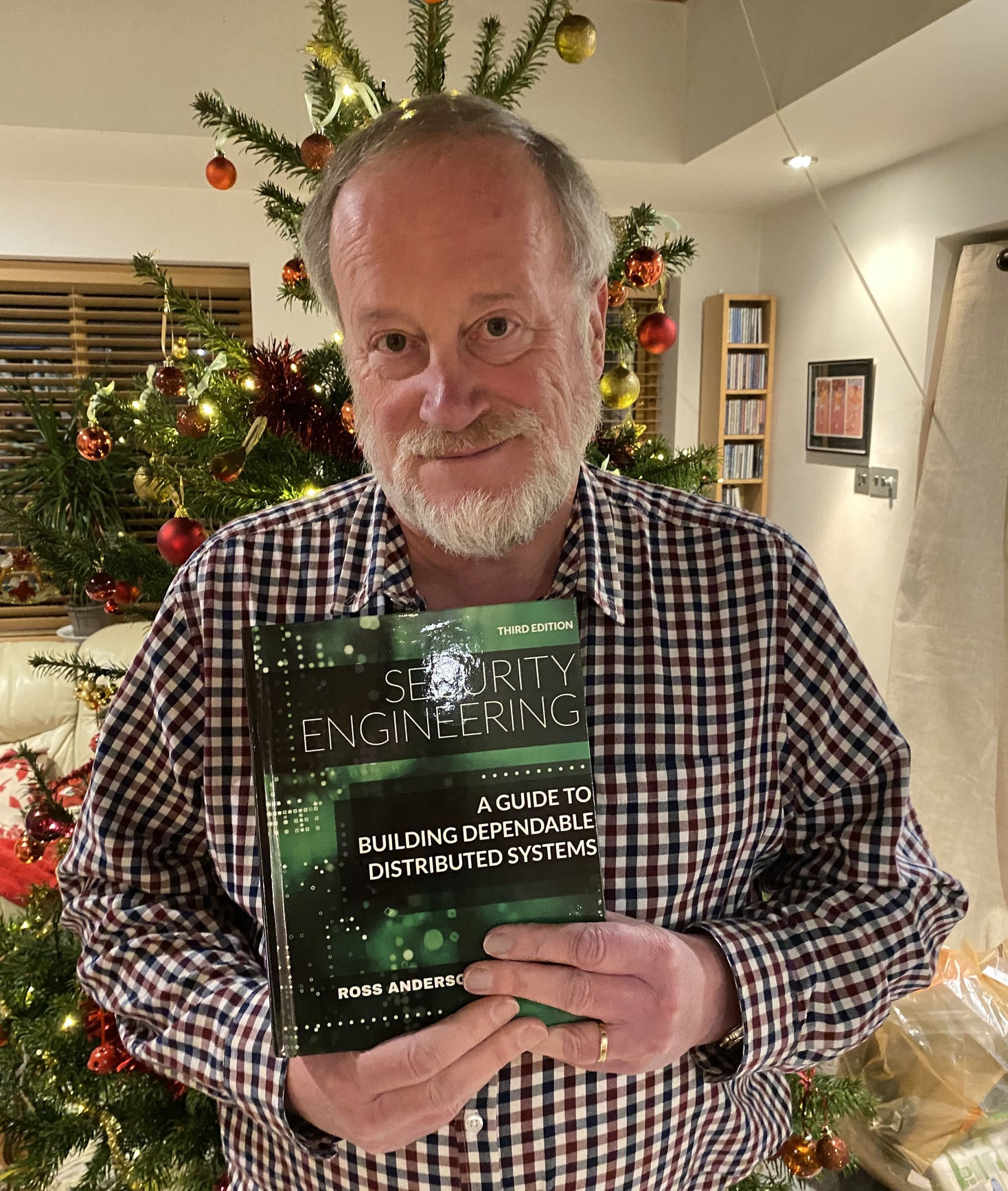Submitted by Alastair Beresford on Wed, 03/04/2024 - 11:26

Professor Ross Anderson FRS FRSE FREng, our friend and longtime colleague, died unexpectedly at home on Thursday 28th March, aged 67.
Ross spent his childhood in Glasgow before moving South to study for a BA degree in mathematics and natural sciences at the University of Cambridge. After graduating in 1978, he embarked on an industry career in aviation and banking. Ross returned to Cambridge in 1992 to study for a PhD degree in our department, focusing on the robustness of cryptographic protocols. He was appointed a University Lecturer in 1995, promoted to Reader in 2000 and then Professor of Security Engineering in 2003.
Ross made significant contributions across many areas of computer security and beyond, including cryptology; cryptographic protocols; cybercrime; hardware security and tamper resistance; information hiding and steganography; peer-to-peer networking; the security of application programming interfaces; the usability of computer security methods; the economics of information security; the connection between security and human behaviour; and many more. He was one of the founders of the field of security economics which explored how ideas from economics can be used to improve our understanding of computer security as well as better inform public policy.
His interest in public policy and governance is longstanding. He founded the Foundation for Information Policy Research in 1998, and throughout his academic career he expended significant effort helping civil society understand the impact of technology. He acted as an expert witness in many court cases and contributed to the good governance and operation of the University.
His book Security Engineering: A Guide to Building Dependable Distributed Systems has become a standard textbook and originated from the dynamic and research-led lecture courses he delivered at the University over the course of his career. It has been revised through three editions (2001, 2008, 2020) and epitomises both the breadth of Ross’s interests and depth of his knowledge.
Ross was elected as a Fellow of the Royal Society and Fellow of the Royal Academy of Engineering in 2009. He was awarded the British Computer Society’s Lovelace Medal in 2016, the top prize in computing in the UK. From 2021, Ross embarked on a joint appointment, splitting his time as a professor between the University of Edinburgh and the University of Cambridge; he was elected a Fellow of the Royal Society of Edinburgh in 2023.
Professor Frank Stajano, who earned his PhD as one of his first students, said "His enthusiasm, his wide-spectrum intellectual curiosity and his engaging prose were unmatched. He stood up vigorously for the causes he believed in. He formed communities around the new topics he engaged with, from information hiding to fast software encryption, security economics, security and human behaviour and more… Ross, thank you so much for your lively, insightful and stimulating contributions to every subfield of security."
Professor Alice Hutchings said "Ross broke down barriers. He treated everyone as equals, from the undergraduate intern to the visiting professor. He loved to bring people together from all walks of life. He saw the opportunity to learn from everyone he met. He loved nothing more than a robust argument; the opportunity to debate an issue at length."
He was widely admired and appreciated as a lively debater and a friendly face. While he lives on through his scholarly work, he will nevertheless be greatly missed.
Professor Alastair Beresford
Head of Department
- There will be a celebration and memorial service for Ross Anderson at Churchill College on 22 June. You can see full details and sign up to attend here.

